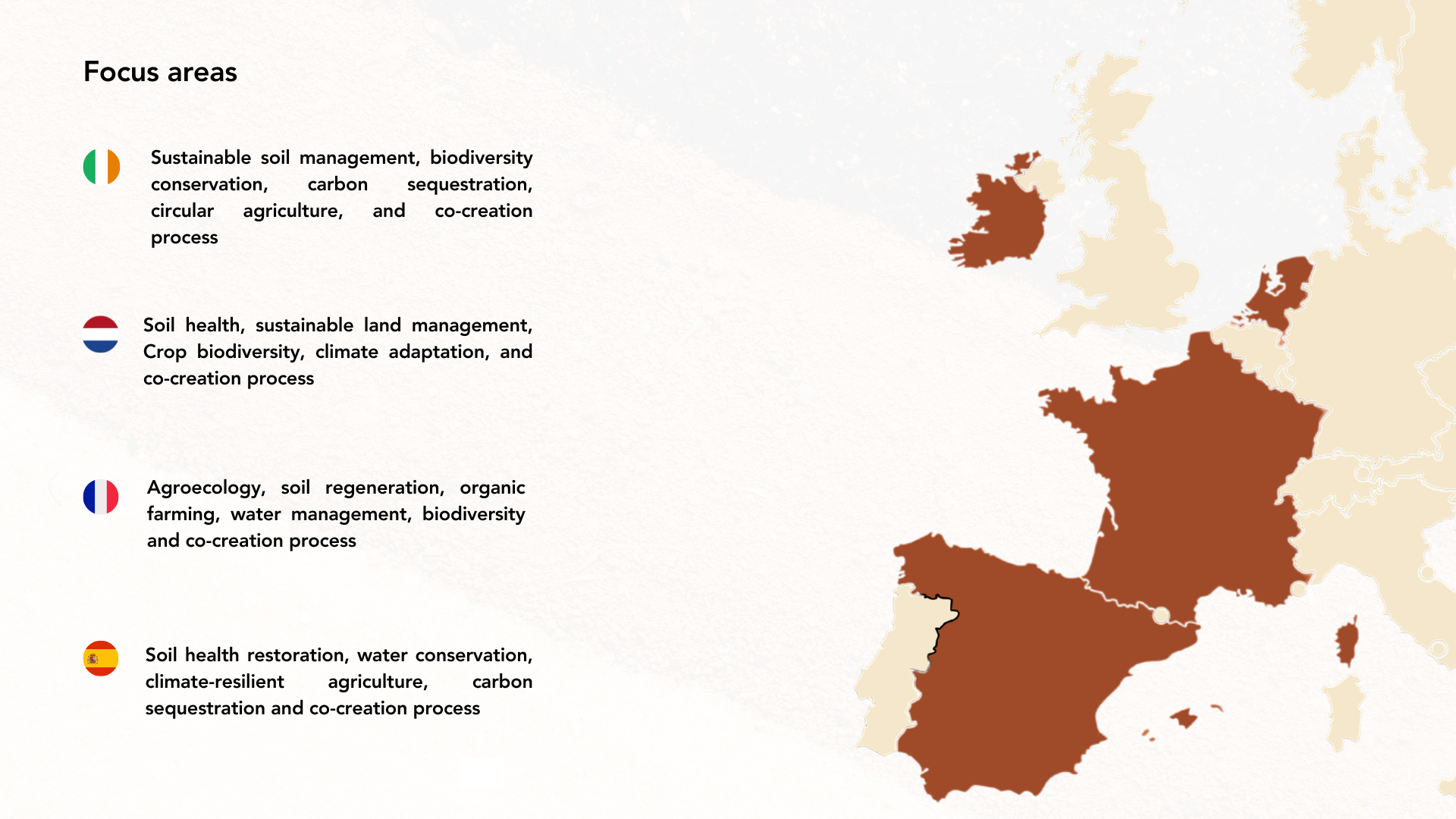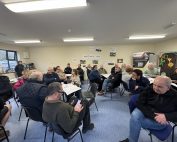
SOil Innovation Labs: Co-Regenerating And Transforming European Soils
Introduction
SOILCRATES is a project funded by HORIZON Research and Innovation to support the implementation of mission A Soil Deal for Europe-(HORIZON-MISS-2023-SOIL-01-08) focused on developing innovative solutions to enhance soil quality and promote sustainable soil management practices. Collaborating with leading experts, researchers, and living labs, SOILCRATES aims to address critical challenges related to soil health, biodiversity, and ecosystem services.
Our purpose
The SOILCRATES project’s ambitions are to improve soil literacy by creating four sustainable and dynamic Living Labs (LLs), to monitor soil health and biodiversity beyond the state-of-the-art, to enhance soil structure and health.
The SOILCRATES consortium includes 21 partners from across the quadruple helix that fully acknowledge the importance of healthy soils, contribution to the EU Mission ‘A Soil Deal for Europe’.
Our Living Labs (LLs)
SOILCRATES aims at establishing 4 regional and interconnected user-centred Living Labs (LLs) in which actors from the quadruple helix cooperatively improve and monitor soil structure, soil life and crop-growing conditions on mineral agricultural soils. Set in place while co-creating beyond the state-of-the-art practices to improve soil health and increasing soil literacy in society.
With an integrated approach, the project enables the co-development of solutions in the LL and testing and replication in the Experimental Sites and Lighthouses.
SOILCRATES in Figures
21
Partners
4
Living Labs
48
Months
11.9 M€
EU Contribution



